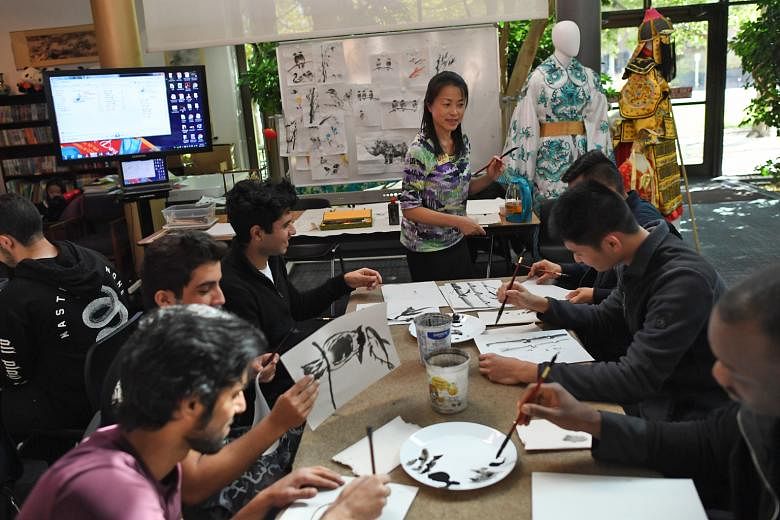A Chinese student, Ms Yang Shuping, was selected as commencement speaker by the University of Maryland in May last year.
When Ms Yang praised the "fresh air of free speech" and contrasted what she had found in the United States with China - with her comments going viral on the Internet and social media in China - she received an avalanche of e-mail threats, and her family in China was harassed.
In 2008, at Duke University, when a 20-year-old female undergraduate student was caught up in a pro-Tibetan independence demonstration, she was vilified online and her parents in China were harassed.
Ms Grace Wang tried to mediate between pro-Tibet and pro-China demonstrators - and ended up being labelled a "traitor", with her picture doing the rounds of the Internet in China. Her parents in China had to go into hiding.
The incidents reflect the long arm of China's surveillance of its students' activities in the US, where in other cases, the Chinese government authorities have even visited students' families in China and warned them about their children's allegedly subversive statements abroad, says a 213-page report titled Chinese Influence And American Interests: Promoting Constructive Vigilance.
The report cites a plethora of examples of how China seeks to influence American political and academic life and society, often in the guise of community organisations.
In recent years, the spotlight has turned to the Confucius Institutes, of which there are now 110 - plus 501 Confucius Classrooms in secondary schools - across the United States, the report states.
The primary mission of the Confucius Institute is to teach Chinese language and culture abroad.
For secondary schools and colleges in the US that have no or little other coverage of China on campus, the Confucius Institutes are an important resource, the report acknowledges. The majority have so far carried out their mission of language and cultural education without controversy.
But the Confucius Institutes are sponsored by the Hanban, an organisation directly under the Ministry of Education in Beijing, but also with ties to the external propaganda leading group of the Chinese Communist Party Central Committee, the report notes.
"Faculty and other watchdogs have warned that they may present risks to intellectual freedom by using American universities as vehicles through which to advance Chinese Communist Party propaganda," the report says.
"Accusations levelled at Confucius Institutes revolve mainly around the exclusive use of PRC materials that promote PRC Chinese viewpoints, terminology... and the avoidance of discussion on controversial topics such as Tibet, Tiananmen, Xinjiang, the Falungong and human rights in American classrooms and programmes," it states. PRC refers to the People's Republic of China.
Some American institutions are having second thoughts, the report pointed out.
In 2014, the University of Chicago terminated its Confucius Institute contract after months of controversy in the faculty, spurred by a critical article by a high-profile emeritus member.
At least two other American universities - Pennsylvania State University and the University of West Florida - have since done the same.
In April this year, in response to the urging of two congressmen who described the Confucius Institutes as threats to national security, the chancellor of the Texas A&M system said the university would terminate its agreement to host the institutes.
Nirmal Ghosh


